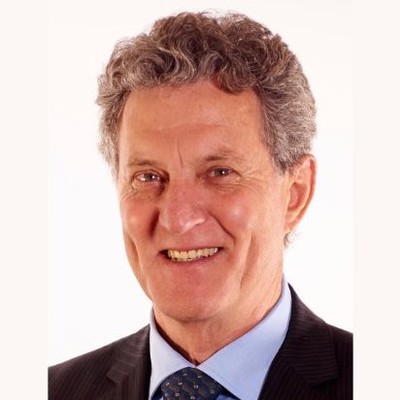productivity
Mindfulness in the Australian Boardroom – Do Less and Accomplish More!
Published: December 8, 2014
Read Time: 4 minutes

Mindfulness has made big inroads into the executive space but it’s yet to gain serious traction in the Australian boardroom. That’s not surprising, given the conservative nature of the boardroom.
The main reason is that directors are generally unaware of the value proposition, personally and collectively. Meanwhile, offshore, there is a global revolution in process – Mindfulness is being advocated by high profile business leaders and adopted by elite corporate organisations, business schools and medical institutions.
Silicon Valley, the most productive, creative and profitable business sector in North America hosts an annual Mindfulness conference, Wisdom 2.0, “addressing the great challenge of our age: to live connected to one another through technology, but to do so in ways that are beneficial to our own well-being, effective in our work, and useful to the world.”
Thousands of Google’s staff complete “Search Inside Yourself,” an in-house course designed to teach Emotional Intelligence through Mindfulness. Google spokeswoman, Katelin Todhunter-Gerberg, told the Associated Press that she has “used mindfulness to help her be less irritable and take things less to heart”.
Silicon Valley’s commercial interest in Mindfulness is summed up by Twitter’s Strategic Advisor, Chris Sacca:
I think the next wave of what is actually happening in Silicon Valley is this wave of meditative awareness. People are realizing, ‘I have optimized my machines, my software…’ yet we are beginning to realize that no matter how great a technological device we buy or how great our network is, the real source of potential is in ourselves.
Apple Computers, Twitter, eBay, SKYPE, Facebook, Cisco Systems, Yahoo, Google, GE, Deutsche Bank, Aetna, Merck, Target, Nike, Time Warner, General Mills – the list goes on – are exploring how meditation can help their leaders and employees enjoy success. The benefits are widely publicized – sustained attention span, improved multi-tasking abilities, strengthened immune system, increased emotional intelligence, improved listening skills.
The experience is supported by science. Research is fast concluding that sitting still (skillfully) for defined periods of time is very productive. Mind/Body Medical Institute at Harvard University found that meditation enhances the qualities companies need most from their knowledge workers: increased brain-wave activity, enhanced intuition, better concentration and the alleviation of stress and the kinds of aches and pains that plague employees most.
Business Schools, including The Drucker School of Management, The Wharton Business School, Claremont Graduate University and Harvard Business School offer instruction in Mindfulness and Virginia Tech is sponsoring “contemplative practices for a technological society,” a conference for engineers who integrate contemplative disciplines into their work.
While the idea of Mindfulness originates in the serious practice of meditation, business school faculties say it has many applications for executives who aren’t looking for a spiritual fix but simply want “to clear their heads and become aware of reflexive, emotional reactions that can lead to bad decisions.”
So what are these practices that are making such an impact on business and researchers globally? What is ‘Mindfulness’?
Mindfulness is the practice of paying attention, to the present moment, on purpose, non-judgmentally. Meditation is the most widely practiced method of cultivating Mindfulness and has considerable benefits to the individual and the organisation.
Anyone can learn meditation. It’s simple and it doesn’t require any special equipment. You can practice meditation whenever and wherever you can sit in a chair. I use it a lot on international flights and arrive rested and alert. This is because meditation is a type of mind-body complementary medicine producing a deep relaxation reflex that de-stresses the practitioner.
An article in Psychiatry Research Neuroimaging by researchers from Harvard Medical School, University of Massachusetts Medical School, and the Bender Institute of Neuroimaging in Germany, found that brain activity changed in a group of 16 participants who had not previously meditated. Among the enhancements: learning and memory processes, emotional regulation, and perspective taking.
A study at American University published in 2009 in Cognitive Processing found that meditating college students experienced enhanced brain activity resulting in benefits that would be highly desirable for any director or CEO:
- Gaining a new perspective on stressful situations
- Building skills to manage stress
- Increasing self-awareness
- Focusing on the present
- Reducing negative emotions and reactivity
- Reducing mental noise
Business leaders can develop, through Mindfulness, a flexible confidence that is ready to learn, reassess, and adapt in the face of novel problems, dissonant voices, and unforeseen opportunities. Consequently, they can adopt an attitude of curiosity, consider other options and make a discerning decision.
In collaborating and consulting in the Boardroom, my aspiration is to positively impact personal and organisational effectiveness. In this respect, I don’t see Mindfulness as a ‘remedial’ activity but rather as a capability accelerator.
In the last 5 years there has been a surge in the number of boardrooms electing to participate in rigorous review processes and be more accountable. This in turn has slowly given purchase to the idea that boardrooms can benefit from professional development as well. Given the huge potential value of Mindfulness Meditation to director well-being, capability and boardroom alignment, I expect a surge of uptake in the coming years.
This article was first published in the Better Boards Conference Magazine.
Share this Article
Recommended Reading
Recommended Viewing
Author
-
Chief Executive Officer
Board Accord
- About
-
Robert consults and facilitates reviews to a diverse portfolio of boards, mentors corporate executives and presents to universities and conferences. He has 20 years of global experience delivering programs, consulting and mediating conflict in corporate settings. Robert Gordon has a Masters in Counselling, focussed on organisational psychology with a dissertation on workplace stress. Robert has expertise in EQ, communication, mindfulness, workplace resilience and boardroom best practice. He has completed numerous “train-the-trainer” qualifications and is a graduate of AICD’s International program (UAE). Robert has also been in clinical psychology practice in a maximum-security prison.
Found this article useful or informative?
Join 5,000+ not-for-profit & for-purpose directors receiving the latest insights on governance and leadership.
Receive a free e-book on improving your board decisions when you subscribe.
Unsubscribe anytime. We care about your privacy - read our Privacy Policy .







